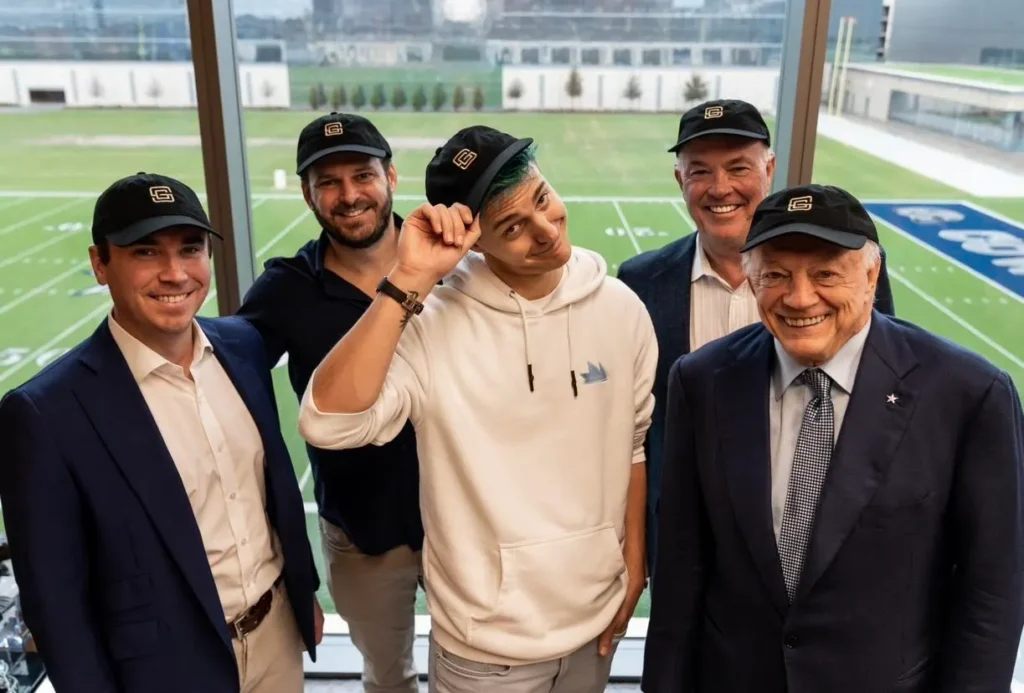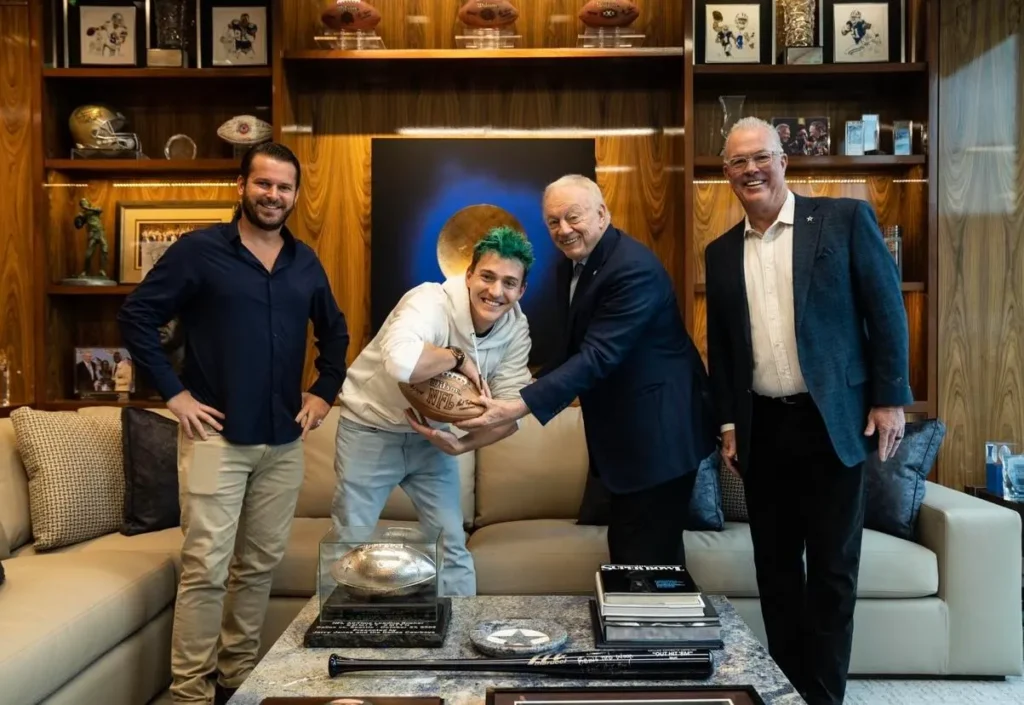Tyler Blevins, widely recognized for propelling gaming into mainstream consciousness, has taken a significant step toward his post-streaming future. The 31-year-old streamer, known as Ninja, announced his role as Chief Innovation Officer at GameSquare, a gaming venture backed 40% by billionaires Jerry Jones and John Goff. This move includes 1 million stock options and an additional 1 million restricted stock units in the publicly traded company.
Expressing his eagerness for a new challenge, Blevins plans to continue content creation under the Complexity brand, an esports organization under the GameSquare umbrella. While overseeing strategy and brand relationships, he will also be the face of Ninja Labs, an upcoming program that will involve co-ownership of products and intellectual property, benefiting both Blevins and creators within an incubator program.
This move brings attention to GameSquare, which recently announced a merger with NASDAQ-traded Engine Gaming and Media. With GameSquare holding 60% of the combined entity, the two companies reported approximately $70 million in revenue over the past year, showcasing notable scale. However, the path to profitability remains uncertain.
The gaming industry, hailed as the future of entertainment, faces challenges in converting vast audiences and brand enthusiasm into consistent profits. Recent setbacks, such as layoffs at 100 Thieves and FaZe Clan’s stock decline, highlight the industry’s struggle to find a sustainable model. Esports organizations, often engaged in various activities beyond competitive gaming, are exploring diverse revenue streams, including successful creators, merchandising, and proprietary technology.

Ninja poses with other GameSquare executives, including Jerry Jones (front right), John Goff (back right) and Justin Kenna (back left).GAMESQUARE
GameSquare, led by CEO Justin Kenna, views esports as a strategic “marketing expense.” The company has adopted a diversified model, encompassing a content studio and a media agency in addition to esports, audience data, and merchandising. By keeping everything in-house, GameSquare aims to minimize costs while facilitating deals and campaigns for talent across various organizations.
GameSquare’s objective is to establish a comprehensive end-to-end network for its talent, creating distinct properties beyond their individual content production. Notably, the company doesn’t take a share of online AdSense revenue generated by its talent; instead, it focuses on what it considers higher-margin businesses. This may include ventures like longform storytelling on mainstream streaming platforms or the creation of toys sold in major retailers like Walmart.
According to Kenna, the anticipated merger between GameSquare and Engine, set to be completed in late March, aims to achieve cash-flow positivity by the end of the year, excluding significant merger-related costs. Success in this endeavor could contribute to rebuilding the industry’s reputation. However, the potential scale of these organizations remains uncertain. In October, prior to market fluctuations, Kenna envisioned a $1 billion valuation in the near future. Presently, GameSquare’s market cap is approximately $40 million, while Engine’s stands at $23 million.
Kenna emphasizes the company’s renewed focus on business fundamentals and innovation, with the latter falling within the purview of Ninja, their recent addition to the C-suite.
Blevins expresses confidence in joining Complexity and partnering with GameSquare, believing in their capacity to overcome industry challenges. While acknowledging the pressure to contribute to the company’s development and innovation, he emphasizes the collaborative effort within a strong team.

